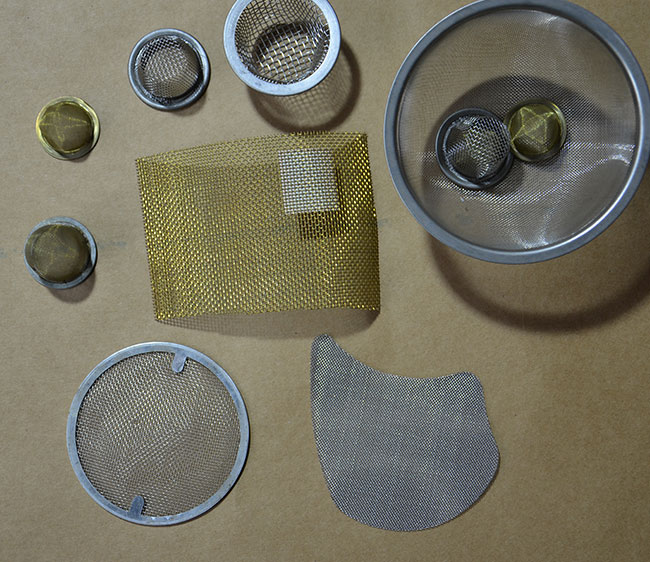Jul . 28, 2024 18:43 Back to list
Top Choices for Durable and Effective Livestock Wire Mesh Fencing Solutions for Your Farm Needs
Best Livestock Wire Mesh Fencing A Comprehensive Guide
When it comes to managing livestock, ensuring their safety and well-being is of utmost importance. One of the most effective solutions for securing animals on a farm is the use of wire mesh fencing. The right fencing not only protects livestock from external threats but also prevents them from wandering off and getting lost. In this article, we will explore the benefits of wire mesh fencing, the different types available, and key considerations to ensure you choose the best option for your farm.
Benefits of Wire Mesh Fencing
Wire mesh fencing offers numerous advantages over traditional wooden or barbed wire fences. First and foremost, its durability is unparalleled. Made from high-quality steel or galvanized materials, wire mesh fencing can withstand harsh weather conditions and resist rust and corrosion, ensuring a long lifespan. This durability translates into lower maintenance costs over time, making it a cost-effective choice for farmers.
Additionally, wire mesh fencing provides superior visibility. Unlike solid wooden fences that can obstruct sightlines, wire mesh allows farmers to monitor their livestock easily. This visibility is crucial for observing animal behavior and quickly identifying any issues that may arise, such as illness or distress among the animals.
Security is another significant advantage of wire mesh fencing. Its strong construction helps prevent predators from infiltrating the enclosure, thereby protecting livestock from potential threats such as coyotes or stray dogs. The closely spaced wires also deter smaller animals from entering the pen, ensuring that your livestock remains safe.
Types of Wire Mesh Fencing
There are several types of wire mesh fencing available on the market, each serving different purposes.
1. Field Fencing This type is designed to confine livestock while allowing smaller animals to pass through. It typically features vertical wires spaced apart and is ideal for containing sheep and cattle.
2. Welded Wire Fencing Consisting of horizontal and vertical wires that are welded at each intersection, this type provides a strong and secure barrier. Welded wire fencing is ideal for fences that require enhanced strength and stability.
best livestock wire mesh fencing

3. Chain Link Fencing While often used for security in urban settings, chain link fencing is also applicable in agricultural contexts. It is particularly useful for smaller livestock or as a perimeter fence around larger enclosures.
4. Electric Fencing For those seeking a more energy-efficient option, electric wire fencing provides an effective deterrent against escape and intrusion. It is essential to ensure proper installation and maintenance to maximize its effectiveness.
Key Considerations for Choosing Wire Mesh Fencing
When selecting the best wire mesh fencing for your livestock, several key factors should be taken into account
- Height and Gauge Depending on the type of livestock you are housing, choose an appropriate height and wire gauge. Taller fencing may be necessary for larger animals, while smaller ones may require less robust options.
- Material Quality Opt for fencing materials that are galvanized or coated to resist rust and extend the life of your investment. High-quality materials are crucial for long-term durability.
- Installation Proper installation is vital for ensuring the effectiveness of your fencing system. Consider hiring professionals if you are unfamiliar with the installation process.
- Local Regulations Research local zoning laws regarding livestock fencing. Compliance with regulations will help avoid issues in the future.
In conclusion, wire mesh fencing is an invaluable asset for any livestock owner. Its durability, visibility, and security make it the preferred choice for farmers looking to protect their animals. By considering the various types available and assessing your specific needs, you can choose the best wire mesh fencing to ensure the safety and security of your livestock for years to come.
share
-
CE Certified 250 Micron Stainless Steel Mesh for Precision & Durability
NewsAug.26,2025
-
CE Certified 250 Micron Stainless Steel Mesh for Precision & Durability
NewsAug.25,2025
-
Premium CE Certified Metal Fine Mesh for Precision & Safety
NewsAug.24,2025
-
Stainless Steel Wedge Wire Mesh: Durable, Precision Filtration
NewsAug.23,2025
-
CE Certified 250 Micron Stainless Steel Mesh for Precision Filtration
NewsAug.22,2025
-
CE Certified 250 Micron SS Mesh - Precision Filtration & Strength
NewsAug.21,2025

